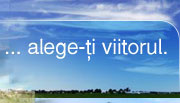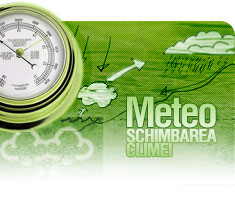http://www.businessmirror.com.ph/climate-finance-for-farmers-key-to-avert-1b-hungry/
With climate change posing growing threats to smallholder farmers, experts working around the issues of agriculture and food security say it is more critical than ever to implement locally appropriate solutions to help them adapt to changing rainfall patterns.
Most countries consider agriculture a priority when it comes to their plans to limit the rise of global temperatures to less than 2 degrees Centigrade. In line with the Paris Climate Change Agreement, 95 percent of all countries included agriculture in their Intended Nationally Determined Contributions.
"The climate is changing. We don't have rains that we used to have in the past. In the last decade, we had two consecutive years of intense drought, and we lost all the production. The animals all died because they had no water," Ahmed Khiat, 68, a small farmer in the Moroccan community of Souaka, told IPS.
Khiat comes from a long line of farmers. Born and raised in the arid region of Settat located some 200 kilometers northeast of Marrakech, he has cultivated the land his whole life, growing maize, lentils and other vegetables, as well as raising sheep. But the family tradition was not passed to his nine sons and daughters, who all migrated to the cities in search for jobs.
In the past, he said, farmers were able to get 90 percent of their income from agriculture-now it's half that.
"They don't work anymore in the field," Khiat said of his sons. "The work here is very seasonal. I prefer they have a permanent job in the city."
Agriculture is an important part of the Moroccan economy, contributing 15 percent to the country's GDP and 23 percent to its exports.
Around 45 percent of Morocco's population lives in rural areas and depends mainly on agriculture for their income, Mohamed Boughlala, an economist at the National Institute of Agricultural Research (INRA) in Morocco, told IPS.
Seventy percent of the people in the countryside live in poverty. Unemployment is common among youth and around 80 percent of farmers are illiterate. Khiat, for example, says he does not know how to spell his own name.
The impacts of climate change are already visible in Morocco, Boughlala said. The proportion of dry years has increased fourfold as surface-water availability decreased by 35 percent.
Climate change particularly affects smallholders who depend on low-input and rain-fed agriculture, like the communities in Settat.
"In the studies we did, we found that we lost 100 millimeters of rainfall in average per year. In 2015 this region had only 400 mm of rain and in 2016 we only had 330 mm. If we show them there is a technology so you can improve the yield, reduce the risk and the cost of production, we can improve small farmers' livelihoods," Boughlala said.
In 2015 families who used conventional plowing methods had zero yield. But the farmers who applied so-called direct seeding had an increase of 30 percent.
Direct seeding is a technology for growing cereals without disturbing the soil through tillage, i.e., without plowing. With this technique, the scarce rainfall infiltrates the soil and is retained near the roots of the crop, which results in higher yields compared to traditional seeding. Soil erosion is reduced and labor costs go down. Direct seeding had been tested in Morocco by INRA as a way to increase resilience to climate change.




 Română
Română English
English


